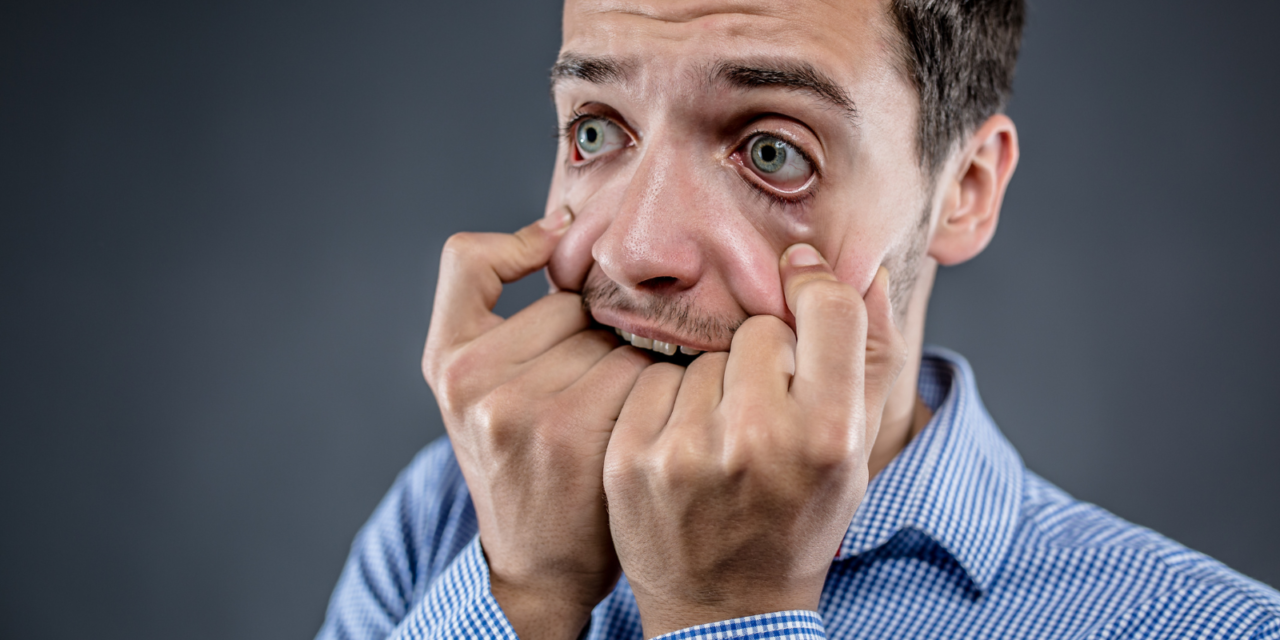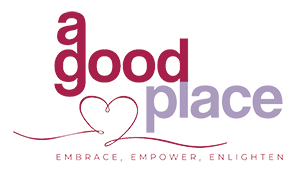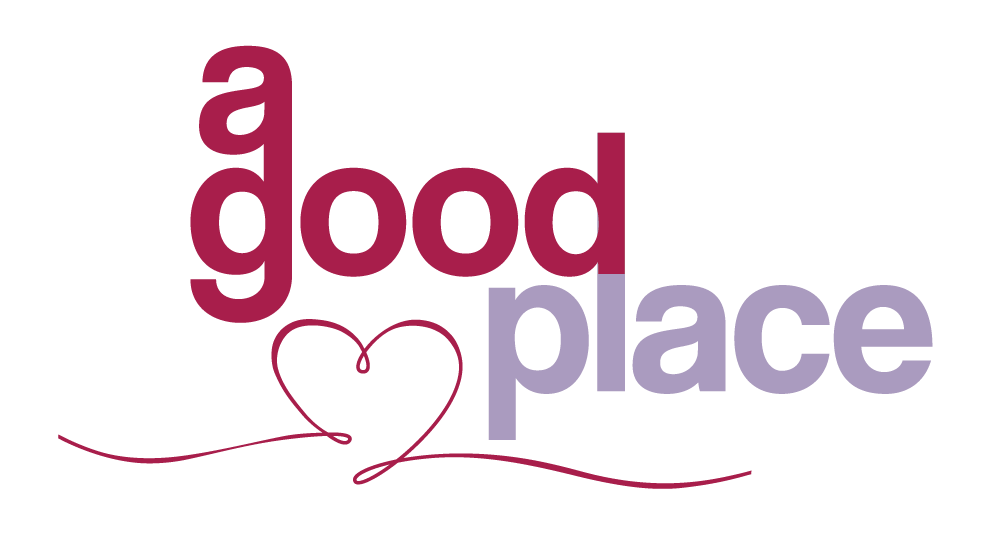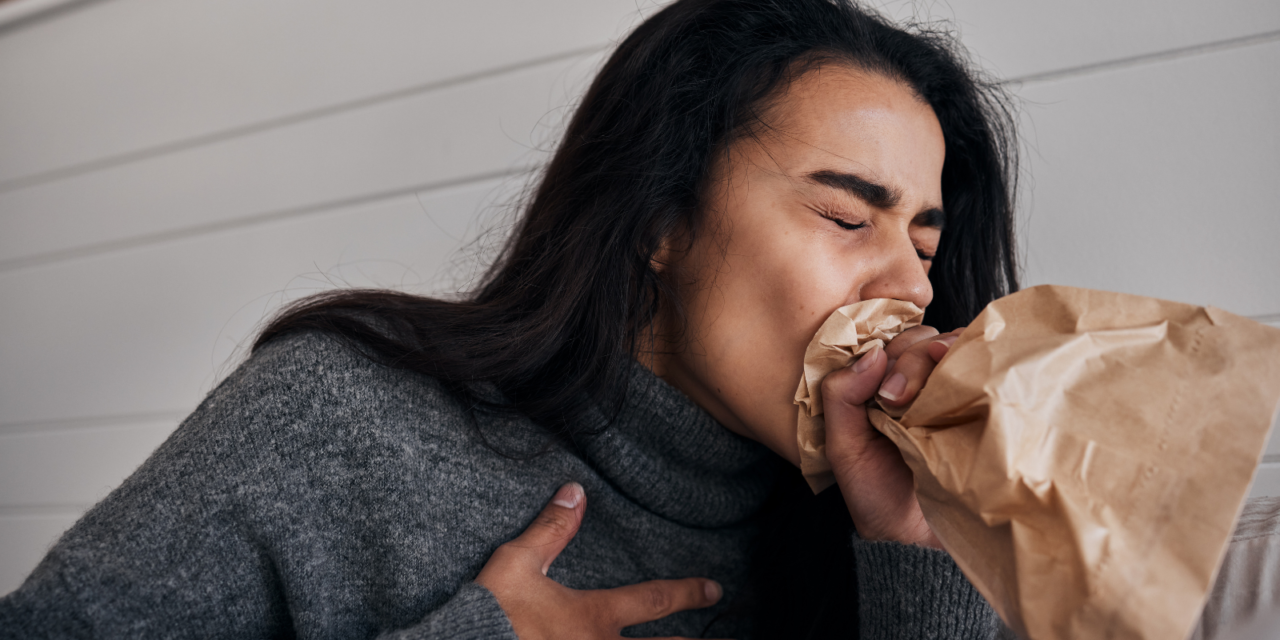How To Cope With Panic Attacks? Must-Know Tips Inside
By: A Good Place Therapy
Panic attacks can be terrifying. One moment you’re fine, and the next, you’re consumed by an overwhelming feeling of dread, paired with physical symptoms like a racing heart and shortness of breath.
Though these episodes can be paralyzing, understanding how to cope can make all the difference.
Below are ten evidence-backed strategies for handling panic attacks and the benefits they bring.
Let’s get right into it.
Why Do Panic Attacks Happen?
Biological Factors: Genetics, chemical imbalances, and physical health can play a role.
Major Life Changes: Events like graduating, getting married, or losing a job.
Traumatic Events: Experiences like a car accident or personal assault.
Chronic Stress: Ongoing work pressures, family disputes, etc.
Excessive Caffeine or Medication Withdrawal: Stimulants can provoke panic in some.

What Do I Do If I Get A Panic Attack?
How To Cope With Panic Attack Tip 1: Deep Breathing
- Effect: Deep breathing helps divert your focus from the panic attack and steadies your heart rate.
- Benefit: This method provides an immediate sense of physical relief and helps reset the parasympathetic system, aiding in relaxation.
How To Cope With Panic Attack Tip 2: Grounding Techniques
- Effect: Techniques, such as the ‘5-4-3-2-1’ approach, help you reconnect with your surroundings and the present moment.
- Benefit: Grounding distracts from the overwhelming feelings and aids in rapid disengagement from the panic.
How To Cope With Panic Attack Tip 3: Positive Self-talk
- Effect: Speaking reassuring phrases to oneself helps challenge and control irrational fears.
- Benefit: This form of cognitive restructuring strengthens the mind’s resilience against future panic attacks.
How To Cope With Panic Attack Tip 4: Mindfulness And Meditation
- Effect: Being present helps dissociate from the spiraling panic and offers a calmer perspective.
- Benefit: Regular practice can lead to reduced overall anxiety and improved emotional well-being.
How To Cope With Panic Attack Tip 5: Limit Stimulants
- Effect: Reducing or eliminating caffeine and certain medications can decrease the occurrence of triggers.
- Benefit: Fewer stimulants can lead to a reduced frequency of panic attacks and better overall health.
How To Cope With Panic Attack Tip 6: Seek Social Support
- Effect: Talking about the experience can provide immediate relief and reduce feelings of isolation.
- Benefit: Over time, this cultivates a stronger sense of belonging and understanding, bolstering mental health.
How To Cope With Panic Attack Tip 7: Exercise Regularly
- Effect: Physical activity releases endorphins—natural mood lifters.
- Benefit: Regular exercise not only reduces the risk of panic attacks but also boosts overall mood and physical health.
How To Cope With Panic Attack Tip 8: Establish A Routine
- Effect: Predictability can provide a feeling of normalcy.
- Benefit: Daily routines can lessen anxiety and provide a sense of control, reducing the triggers of panic.
How To Cope With Panic Attack Tip 9: Educate Yourself
- Effect: Understanding what happens in your body during a panic attack can make the experience less intimidating.
- Benefit: Knowledge is empowering, leading to a more proactive approach to managing and understanding one’s mental health.
How To Cope With Panic Attack Tip 10: Professional Therapy
- Effect: Therapy, especially Cognitive Behavioral Therapy (CBT), equips individuals with strategies to confront and alter panic-inducing thought patterns.
- Benefit: Over time, therapy can lead to a significant reduction in the frequency and severity of attacks, promoting lasting mental well-being.
20 Vital Statistics About Panic Attacks In Canada
Prevalence: Approximately 2.4 million Canadians aged 15 and older have reported symptoms consistent with a panic disorder at least once in their lifetime.
Gender Disparity: Women in Canada are twice as likely as men to be diagnosed with panic disorders.
Age of Onset: The average age of onset for panic disorders in Canada is 24 years.
Coexistence with Depression: About 50% of individuals with a panic disorder in Canada also suffer from depression.
Treatment Rates: Over 60% of Canadians with panic disorder seek and receive treatment.
Recurrence Rate: Without appropriate treatment, there’s an 85% chance of recurrence within a year.
Impact on Employment: Approximately 20% of Canadians with panic disorder report that their condition affects their employment status or job performance.
Duration: Most Canadians experiencing a panic attack report that the episode lasts between 5 to 20 minutes.
Frequency: Those diagnosed with panic disorder in Canada experience an average of 13 to 15 panic attacks per year.
Emergency Room Visits: Roughly 10% of emergency room visits related to anxiety in Canada are due to panic attacks.
Medication Use: About 40% of Canadians with panic disorder are prescribed medication to manage their symptoms.
Hospitalization: Fewer than 5% of individuals with panic disorder in Canada require hospitalization due to their condition.
Coexistence with Other Anxiety Disorders: 30% of Canadians with panic disorder also have another type of anxiety disorder.
Suicidal Ideation: Canadians with panic disorder are three times more likely to have suicidal thoughts compared to the general population.
Coexistence with Substance Abuse: Approximately 20% of Canadians with panic disorder have a coexisting substance use disorder.
Therapy: Cognitive-behavioral therapy (CBT) is the most commonly recommended non-pharmacological treatment in Canada for panic disorder.
Economic Impact: Panic disorders cost the Canadian economy an estimated $3 billion annually due to healthcare expenses and lost productivity.
Social Impact: Around 25% of Canadians with panic disorder report avoiding social situations due to fear of having a panic attack.
Travel and Mobility: Approximately 15% of individuals with panic disorder in Canada report avoiding travel or going to new places because of their condition.
Link with Physical Health: Nearly 30% of Canadians with panic disorder also report having a chronic physical health condition.
It’s important to note that while these statistics provide an overview of panic disorder in Canada, individual experiences can vary widely. Always consult with a healthcare provider for a comprehensive understanding and diagnosis.
FAQs About Panic Attacks
What is a panic attack? A sudden episode of intense fear triggers physical reactions without any danger or apparent cause.
How long does a panic attack last? Most peak within minutes and seldom last more than an hour.
Can panic attacks harm me? Physically, they’re not dangerous. But they can be emotionally taxing and impact quality of life.
Can panic attacks be prevented? While not always preventable, treatments and coping strategies can reduce their frequency and severity.
Is medication necessary for treatment? Not always. Some benefit from therapy alone, while others need medication.
Are there specific triggers for panic attacks? Triggers vary by individual. They could be situational or related to specific fears.
Can children have panic attacks? Yes, children and teens can also experience them.
Is it a heart attack or a panic attack? Symptoms can be similar, but a heart attack has distinct symptoms. Always seek medical attention if unsure.
Can diet influence panic attacks? Yes, caffeine, sugar, and certain medications can trigger or exacerbate anxiety in some.
Are there natural remedies? Some find relief with herbal remedies but always consult with a healthcare provider first.
Summary: How Do I Cope With Panic Attacks?
- Deep Breathing
- Grounding Techniques
- Positive Self-Talk
- Mindfulness And Meditation
- Limit Stimulants
- Seek Social Support
- Exercise Regularly
- Establish A Routine
- Educate Yourself
- Seek Professional Therapy
While it’s natural to want to avoid facing a panic attack, equipping oneself with these coping techniques can offer a lifeline in those intense moments. Over time, with practice and perhaps professional guidance, the frequency and intensity of panic attacks can diminish, leading to a happier, healthier life. Remember, each individual’s journey is unique; what works for one person might differ for another, so always prioritize what feels right for you.
If you have any questions about our article, “How Do I Cope With Panic Attacks? Must-Know Tips Inside” or need an online therapist in Ontario, feel free to contact us at [email protected] or on LiveChat and social media.





